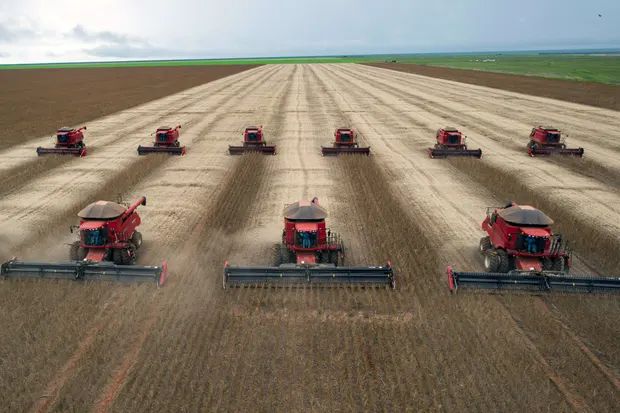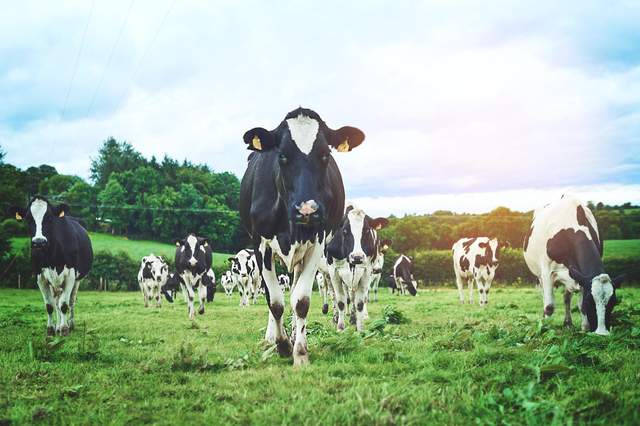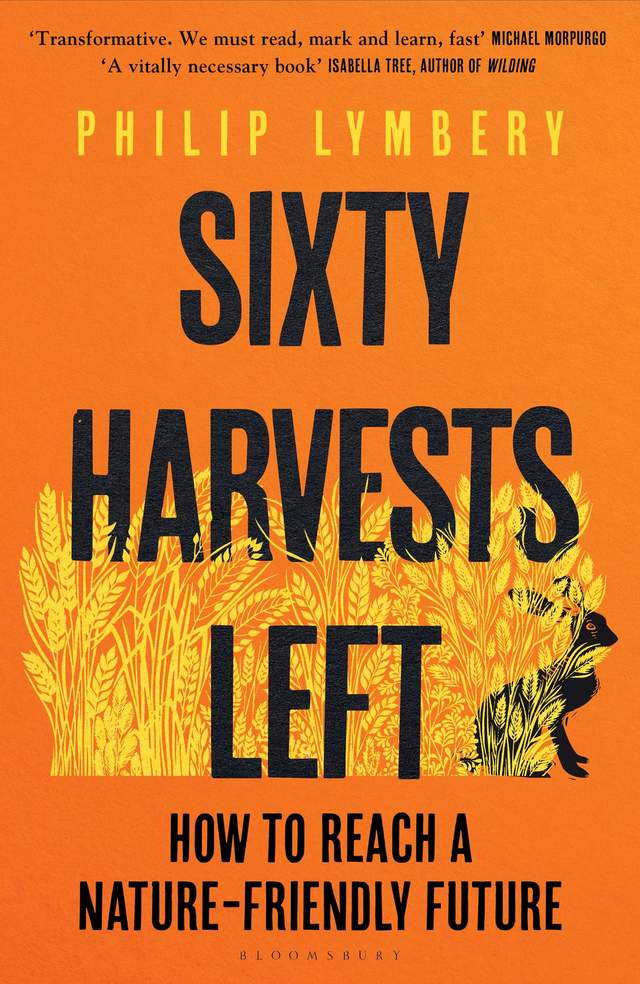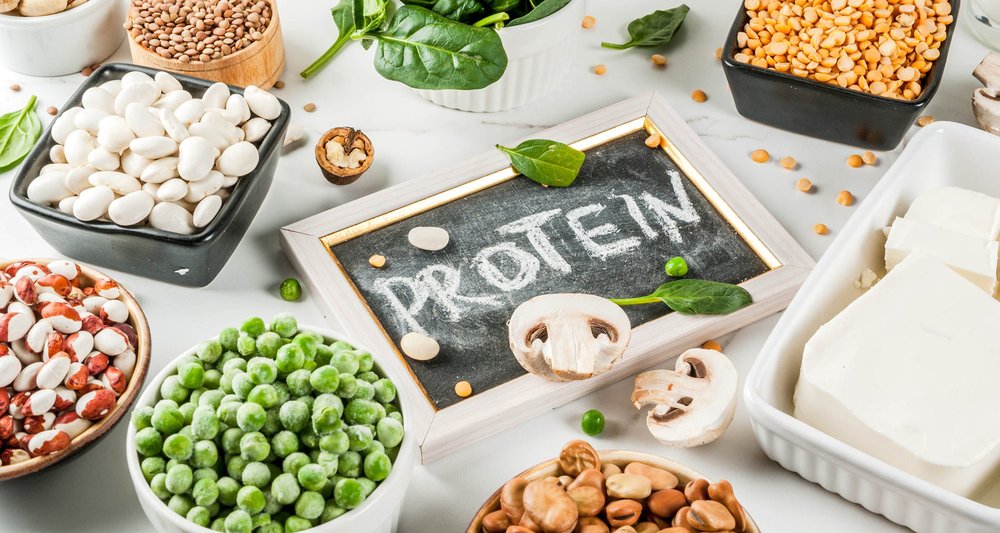In his new book Sixty Harvests Left, Scotsman columnist and CEO of Compassion in World Farming Philip Lymbery argues that industrial farming methods are endangering the planet, and only by returning to sustainable methods, along with a huge reduction in the consumption of meat, can we avert a global disaster.
Early morning, and distant trees were silhouetted against a reddening sky. A veil of mist hung above the frost-brushed pasture. Birdsong was rising with flutily interweaving notes. On our front lawn, a male pheasant, resplendent with long tail and fancy headdress, pecked at spilt seeds. Jackdaws jostled with mallards for leftovers. Later, they would be standing on the backs of cows, plucking beakfuls of hair to line their nests. The seasons had changed, and there was no time to lose.
Like the wildlife around our farm hamlet, I sensed change was in the air, and not just of the seasons: the whole world stood at a crossroads. It was April 2021 and Joe Biden, the new American president, had announced that humanity was entering a ‘decisive decade’ for tackling climate change. In a similar vein, the UK business secretary had recognised that ‘societal change’, including diets with less meat, would help to meet climate targets. And for my own small part, I had been chosen as one of a global network of ‘champions’ to support the UN secretary general’s call for ‘transforming’ food systems.
As I stood in the early-morning sun with my faithful canine companion Duke, I felt hopeful that the world might be waking up to the risks posed by climate change and the collapse of nature. There was still time to pull back from the brink.
So much of our societal thinking is based around the economy. Economists talk of ‘corrections’, sudden downturns in fortune for financial markets, and regard the Wall Street Crash of 1929 as a prime example. That crash led to the Great Depression and sparked the American Dust Bowl crisis, setting the scene for the emergence of factory farming. The sharp economic downturn caused by the coronavirus pandemic is a more recent example. Although hugely painful in the short term, these crashes and corrections are mercifully temporary, with economic growth eventually being restored.

If we look at our planet in similar terms, we can see that we expect infinite growth in a finite world. And if we continue to exceed our planetary boundaries, nature’s correction may be less forgiving.
While writing this book, I’ve discovered that change is inevitable, that if we carry on as we are, more planetary boundaries will be crossed. The prospect of climate change and the collapse of nature have entered the collective consciousness like an autumnal chill. While leaders are starting to say the right thing, only action will turn things around, preventing society from entering a perpetual winter. Global agreements on climate change and the protection of biodiversity are already in place, but what’s missing is a United Nations commitment to change the one thing that stands in the way of achieving both of these: food.
For millennia, farming has worked in harmony with nature, but just one lifetime ago, things took a different course with the emergence of industrial agriculture. In reducing sentient creatures to the role of animal machines, we threw away our moral compass, disregarded the importance of farming with nature and tore up our 10,000-year-old contract with the soil. Hence why the UN has warned, carry on as we are and there could be just sixty harvests left in the world’s soil. No soil, no food. Game over.

What I’ve discovered is that the necessary changes to our food system can be brought about by a veritable ‘three Rs’ approach – regenerative farming, reducing our consumption of animal-sourced foods and rewilding the soil.
Through a combination of regenerative farming and fewer farmed animals, the world’s food system could become genuinely sustainable. Soil fertility could be turbo-boosted by that rotational symphony of plants and animals working in harmony with underground ecosystems. Huge amounts of carbon could be locked up in the ground. Meat from farmed animals would once again be an occasional treat, while everyday meat would come from plant-based proteins, cultured meat and other alternatives.
Regenerating the countryside relies on the restoration of farmed animals to the land as part of mixed, rotational farms, while balancing our diets with more ingredients from plants and alternative proteins. The joyous thing is that when animals are returned to the land in the right way – as rotational grazers or foragers – amazing things happen. Soils start to regenerate. As animals live more naturally, their droppings fertilise the land. In every hectare of healthy soil, the mass of biodiversity equivalent to the weight of an elephant gets to work. Crop yields are restored naturally and animals are kept in ways that bring joy to their lives.
Restorative, nature-friendly farming is better able to feed the world. Rather than being wastefully fed to animals on factory farms, arable crops can nourish people directly, freeing up enough land worldwide to feed four billion people. By ending factory farming therefore, we can feed everyone with less farmland, not more. In the UK, where 55 per cent of cropland is used to grow animal feed, a third of that land could provide 62 million adults a year with their five daily portions of fruit and vegetables.

Although soil health in many parts of the world including the UK is pitiful and getting worse, switching to regenerative farming would change things dramatically.
Once soil health has been restored, society could reappraise the role of farmed animals altogether. The rise of alternative proteins from plant-based, cell-culture and fermentation methods could oust cheap, factory farmed meat from our plates, making food more sustainable. Within decades, we could reach a moment in history where we look upon meat from farmed animals in the same way as the carthorse; where something that was once regarded as a necessity could become redundant. All of which leads me to the conclusion that by the end of the century, meat-eating as we know it will be a thing of the past.
Whilst writing and living on a farm hamlet, I have seen many times why a fusion between food, farming and nature is the way forward.
I have also seen why we should respect the kinship that exists between living beings. One moment in particular sticks in my mind, back in spring 2021, when I walked with Duke along the river valley in search of our neighbouring cows. We spotted them grazing on the far side of the river. Having noticed us, the cattle waded across in a straggly line. We hadn’t met these individuals before.
They were young, eager and inquisitive, bright-eyed and enthusiastic about life. The first ones out of the river fixed Duke with a stare. They hesitated a bit before gingerly approaching. As they reached us, cows and dog extended necks and sniffed each other curiously before going nose-to-nose. Then their tongues met in a timeless gesture of kinship – animals licking each other, exchanging saliva; a gesture of greeting and reassurance.
In that moment, I wanted the whole world to see what Duke was demonstrating: that these ‘livestock’, far from machines, were fellow creatures.
At the heart of sustainable change lies a recognition that all life on our planet is interconnected, and that our future depends on treating it with compassion and respect. In so doing, we can protect the world’s soils and wildlife as if our lives depend on it – because they do. The life expectancy of farmland soils would change from just sixty harvests left to one of infinite sustainability, while regenerative farming can help end cruelty to animals, save wildlife, stabilise the climate and safeguard the planet for future generations. And to me, that seems like a future worth having.
Philip Lymbery will discuss Sixty Harvests Left with Deborah Meaden at an Oxford Literary event at 6pm on September 16 at The Sheldonian, Oxford. Tickets may be purchased here. Philip will also be speaking at a 15×15 event on September 19. Book tickets to join the livestream here.








